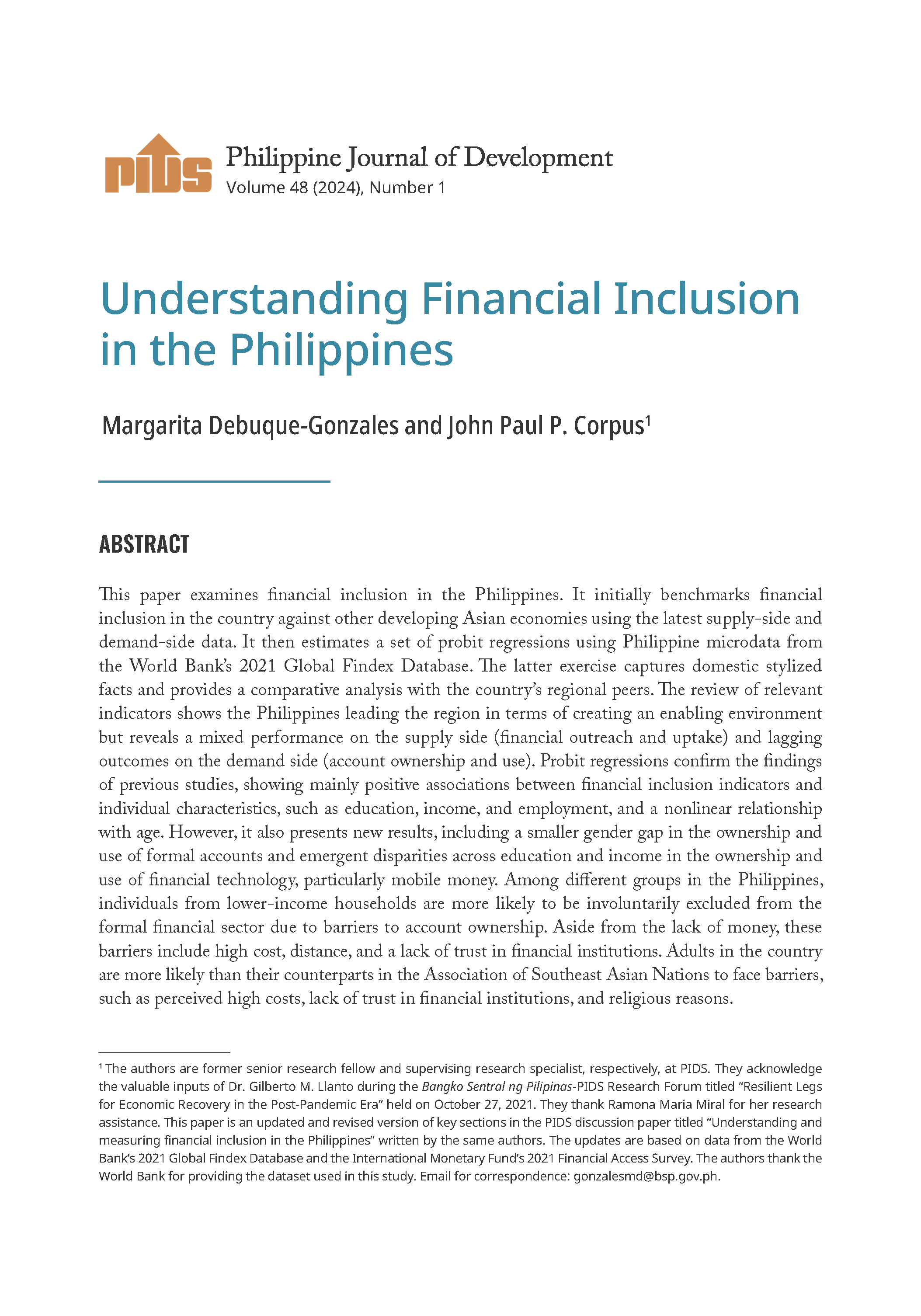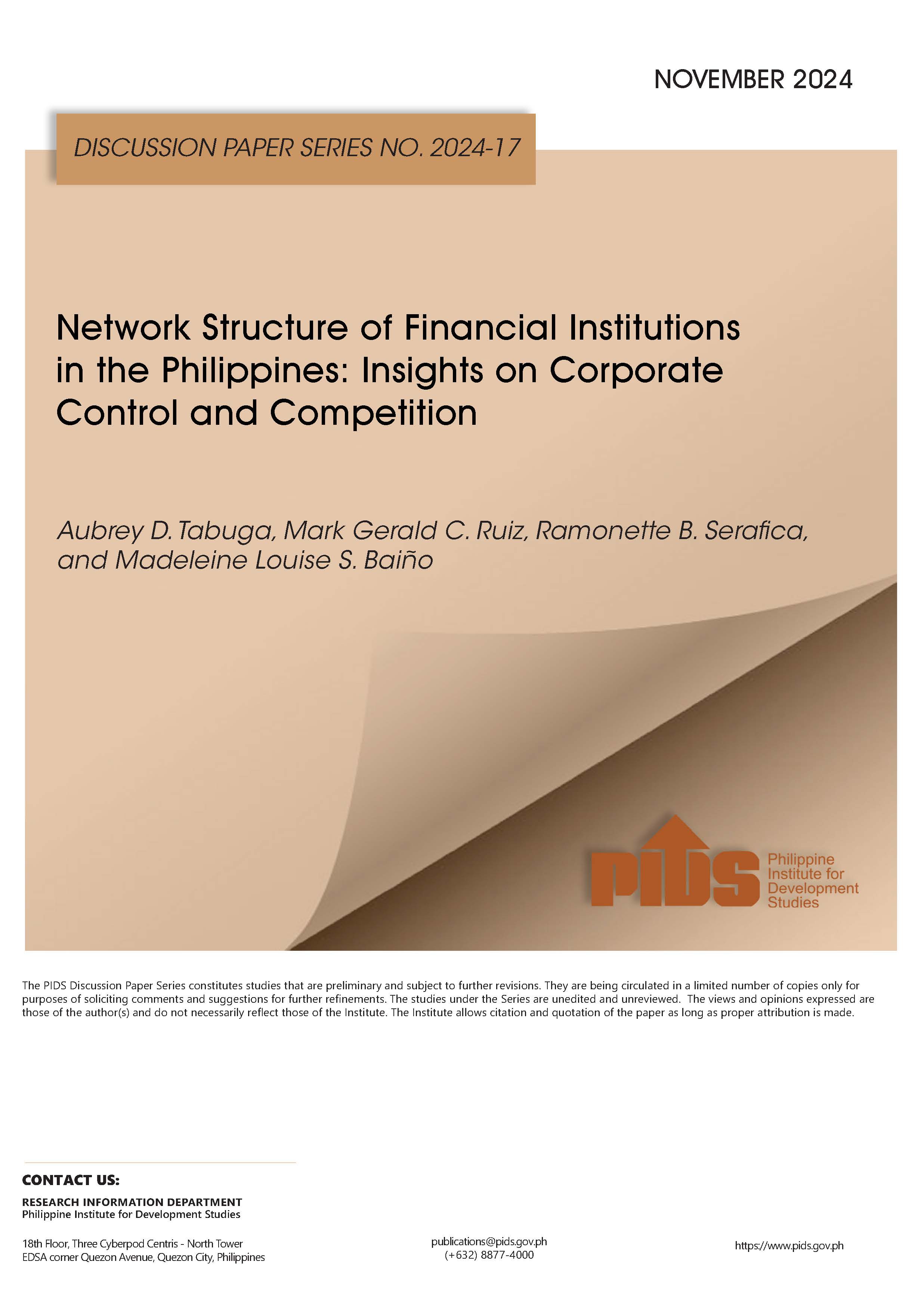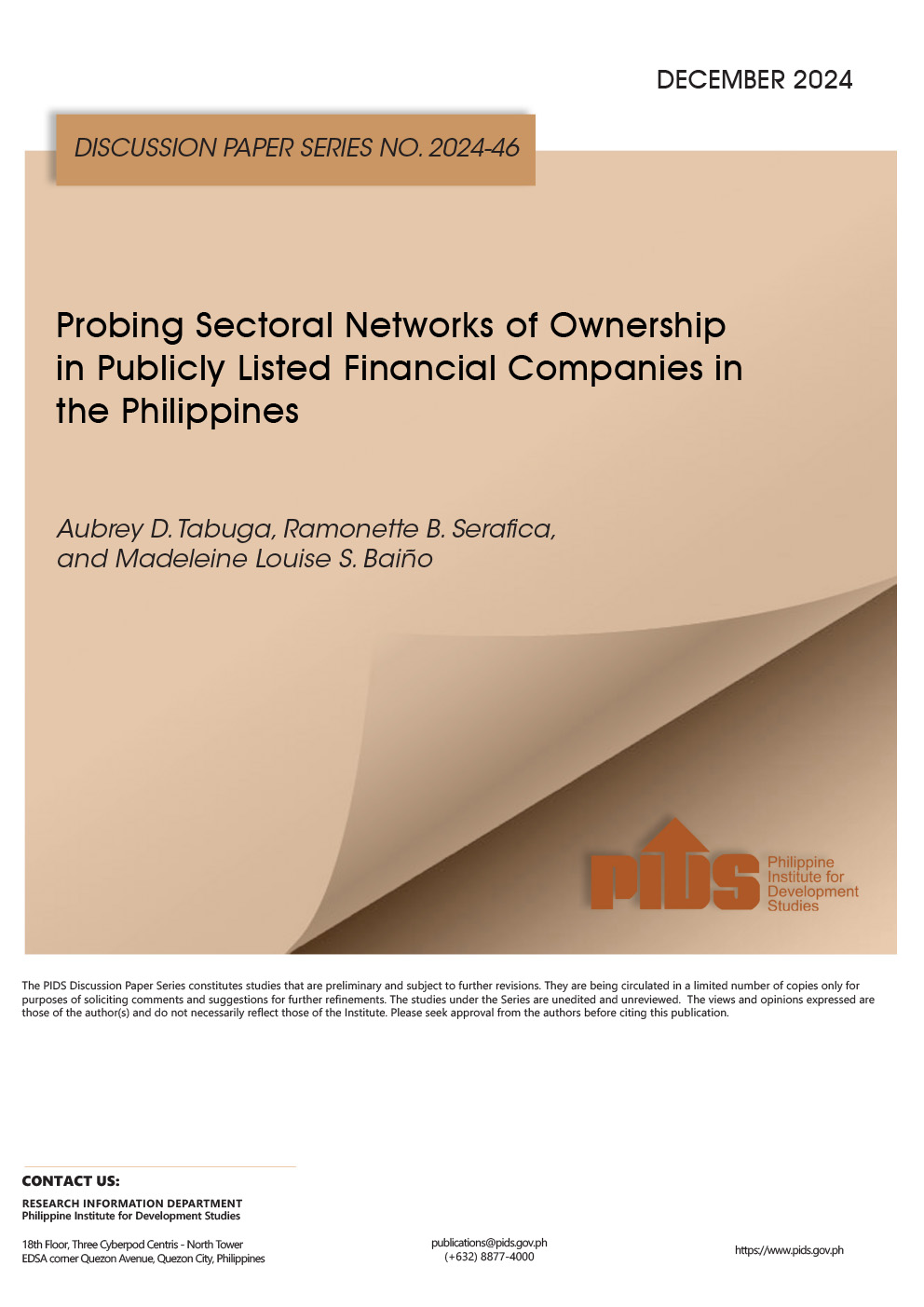MANILA, Philippines — The Philippines lags behind other member-countries of the Association of Southeast Asian Nations (ASEAN) in terms of the development of its financial sector, according to the Philippine Institute of Development Studies (PIDS).
In a new study titled “Financial sector development: A review,” the state-run think tank said ASEAN neighbors like Malaysia and Thailand have overtaken the Philippines in terms of deepening financial access and efficiency.
There has also been no significant transformation in the Philippine financial services sector over the past three decades as banks remain dominant.
The study noted, however, that the Philippine banking system is among the most stable in the region.
The dominance of banks in upper middle income ASEAN states, such as Malaysia and Thailand is not as significant compared to lower middle income countries such as the Philippines.
In high income countries such as Singapore, non-banking financial institutions dominate banks in terms of assets and services.
“Another characteristic of a well-functioning financial system is the provision of financial services to a wide range of households and firms, not just large companies and rich individuals,” said PIDS.
It noted that the number of individuals with accounts in financial institutions has increased across ASEAN countries from 2011 to 2017, but the Philippines has significantly lagged behind ASEAN member-states in terms of access to banking services.
The use of mobile money transfers has also grown across the region including the Philippines, but take up in the country was still the slowest among comparable countries.
Despite the country’s weakness in introducing more alternative financial services to the population, PIDS noted the greater stability of Philippine banks.
“The Philippine banking system fared better with respect to financial stability,” said PIDS.
“The dominance of the banking sector is common in developing economies, including in ASEAN. It should be noted that the banking sector in the Philippines has proven to be resilient in the face of global financial crises, underpinned by a strong regulatory and supervisory framework. However, a review of the state of the Philippine financial services sector indicated that there has been no significant transformation over the past three decades,” it said.
It also noted that a review of the financial regulatory











